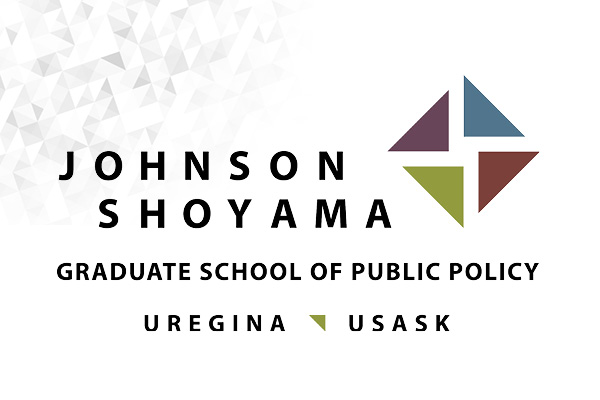By: Kyle White, MPP candidate
The Canadian Universal Healthcare system has its roots in Saskatchewan, supported by Premier Thomas Douglas, and is considered by many to be among the best in the world. But is that still the case?
In the seventh edition of Health at a Glance, published by the Organization for Economic Cooperation and Development (OECD) in 2013, Canadians may have been surprised to learn that Canada’s performance varies from among the best to the worst, among members. Relative to other OECD countries, Canada performs well on several indicators, including avoidable hospital admissions, overall stroke mortality and smoking rates. However, Canada still has a far ways to go with regards to its performance on diabetes and obesity rates, and other patient safety indicators. Further, the report cited inefficient implementation of healthcare and a lack of accessibility as major challenges facing Canadians. These challenges emerge from difficulties providing services in remote communities and the growing costs in the medical field.
In a subsequent report (OECD Health Statistics 2014), the OECD also brings to light Canada’s need to address mounting pressure on future health care budgets, caused by longer life expectancies and growth in its medical workforce.
Do these findings indicate a need for new and innovative policy approaches? Students in the Johnson-Shoyama Graduate School (JSGS) seem to think so.
Students at the JSGS are interested in understanding the root causes of these problems, in order to identify policy recommendations they hope will someday improve the public’s health and well-being. More specifically, our students are currently focused on topics such as pharmaceutical care, service delivery, financing, indigenous knowledge, and doctor-patient relationships – although some may take a less conventional approach to looking at an issue.
FINANCING CANADA’S HEALTH CARE SYSTEM
Master of Public Policy (MPP) student, Colten Goertz, is taking a unique research approach to health policy, focusing on fiscal federalism.
Provincial health care is partially financed through transfers from the federal government and delivered by the provinces while complying with Canadian standards. However, the limited amount of federal transfers and the rising costs have led to concerns regarding accessibility and sustainability of health care.
 |
| Colten Goertz |
Under the guidance of his co-supervisors, Haizhen Mou and Greg Marchildon, Goertz is examining the Canada Health Transfer program in relation to financing arrangements in other federal states in hopes of understanding how best to improve the federal transfer system. Goertz is conducting an extensive analysis of academic literature surrounding fiscal federalism and health policy. He will conduct a comparative analysis of federal transfer systems in Canada and Australia. As part of his research, Goertz will also examine the “needs-based” allocation formula for federal transfers that considers the different health care needs and different costs of delivering health care in the provinces.
“Ensuring efficient and equitable financial support for the provinces will improve overall conditions for Canadians,” says Goertz, and as such is proposing fundamental changes to the healthcare transfer system in Canada.
DEVELOPING AN INDIGENOUS POLICYMAKING MODEL
Cassandra Opikokew Wajuntah, JSGS PhD candidate, believes that very little research exists on traditional policy-making amongst Indigenous peoples in North America prior to contact. Through funding obtained by the Canadian Institute of Health Research, and under the guidance of her supervisor Greg Marchildon, Opikokew Wajuntah is furthering her work on Indigenous health and education policy by developing an Indigenous policymaking model that acknowledges traditional ways of knowing. This is opposed to conventional approaches that impose colonial ideals on Indigenous populations.
 |
| Cassandra Opikokew Wajuntah |
According to the United Nations Human Development Index, a mechanism that measure the overall health and well-being of nations, Canada ranks just short of the top ten at 11th place. When First Nations people in Canada are isolated, they rank 63rd, or amongst Third World conditions. In the areas of health and education, Indigenous people still have lower educational attainment rates and poorer health outcomes than the rest of Canadians. In 2009, approximately 64% of First Nations students attended school on reserve, and among these students the dropout rate was 72%.
“Until the policy-making process and institutions are properly examined with an Indigenous lens and lessons are drawn from policy cases of success and failure, policymakers will continue using a policy-making system and decision-making perspective that fails to improve outcomes for Indigenous people,” says Opikokew Wajuntah. “We need to find an Indigenous solution to the policy problem.”
As part of her research, Opikokew Wajuntah is conducting interviews with two key informant groups: traditional knowledge holders and Indigenous policy makers. Using an Indigenous research methodology, she is examining how Indigenous peoples made decisions prior to colonization and how Indigenous policymakers experience and interact with the current colonial system. Opikokew Wajuntah is also conducting an international comparison of colonial states (Canada, America, Australia, and New Zealand) to better understand how healthcare and education policies impact Indigenous health and education outcomes.
One of the core reasons why Opikokew Wajuntah decided to continue her studies in Saskatchewan was because of her connection to local First Nations and researchers. These are relationships that take time and dedication to create and are not easily replicated. Throughout her studies, she has also been employed as the associate director of the Indigenous Peoples’ Health Research Centre and leads the knowledge translation, policy development and strategic initiatives of the centre. In this role, she works directly with staff and Saskatchewan First Nations to find Indigenous solutions to health issues. While unsure exactly what career path she will follow post graduate school, Opikokew is committed to working with First Nations on issues of health policy.
